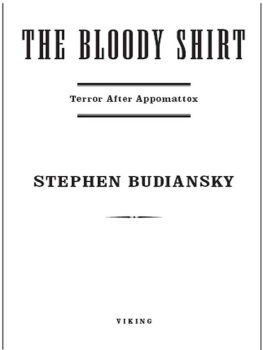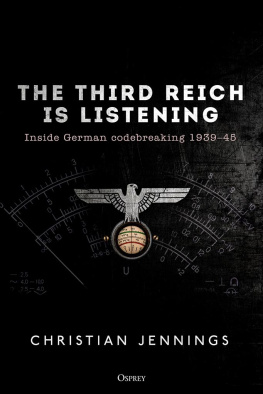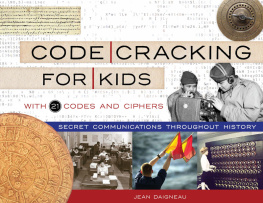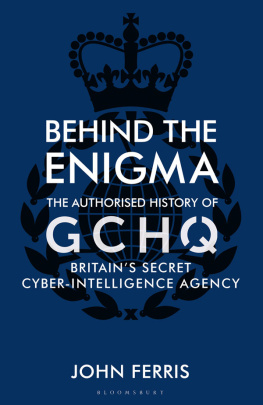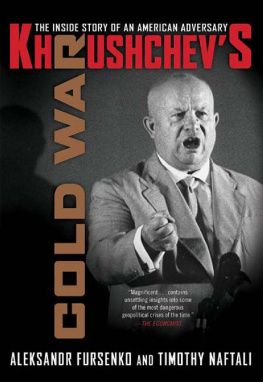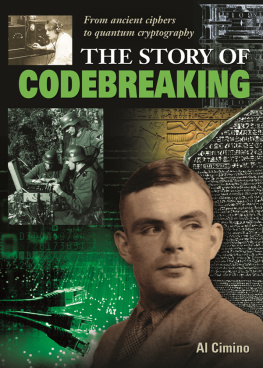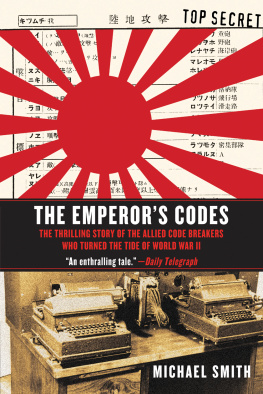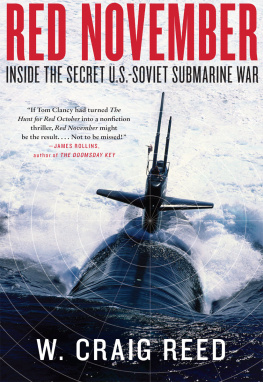Stephen Budiansky - Code Warriors: NSA’s Codebreakers and the Secret Intelligence War Against the Soviet Union
Here you can read online Stephen Budiansky - Code Warriors: NSA’s Codebreakers and the Secret Intelligence War Against the Soviet Union full text of the book (entire story) in english for free. Download pdf and epub, get meaning, cover and reviews about this ebook. year: 2016, publisher: Knopf, genre: Politics. Description of the work, (preface) as well as reviews are available. Best literature library LitArk.com created for fans of good reading and offers a wide selection of genres:
Romance novel
Science fiction
Adventure
Detective
Science
History
Home and family
Prose
Art
Politics
Computer
Non-fiction
Religion
Business
Children
Humor
Choose a favorite category and find really read worthwhile books. Enjoy immersion in the world of imagination, feel the emotions of the characters or learn something new for yourself, make an fascinating discovery.

- Book:Code Warriors: NSA’s Codebreakers and the Secret Intelligence War Against the Soviet Union
- Author:
- Publisher:Knopf
- Genre:
- Year:2016
- Rating:4 / 5
- Favourites:Add to favourites
- Your mark:
Code Warriors: NSA’s Codebreakers and the Secret Intelligence War Against the Soviet Union: summary, description and annotation
We offer to read an annotation, description, summary or preface (depends on what the author of the book "Code Warriors: NSA’s Codebreakers and the Secret Intelligence War Against the Soviet Union" wrote himself). If you haven't found the necessary information about the book — write in the comments, we will try to find it.
The National Security Agency was born out of the legendary codebreaking programs of World War II that cracked the famed Enigma machine and other German and Japanese codes, thereby turning the tide of Allied victory. In the postwar years, as the United States developed a new enemy in the Soviet Union, our intelligence community found itself targeting not soldiers on the battlefield, but suspected spies, foreign leaders, and even American citizens. Throughout the second half of the twentieth century, NSA played a vital, often fraught and controversial role in the major events of the Cold War, from the Korean War to the Cuban Missile Crisis to Vietnam and beyond.
In Code Warriors, Stephen Budianskya longtime expert in cryptologytells the fascinating story of how NSA came to be, from its roots in World War II through the fall of the Berlin Wall. Along the way, he guides us through the fascinating challenges faced by cryptanalysts, and how they broke some of the most complicated codes of the twentieth century. With access to new documents, Budiansky shows where the agency succeeded and failed during the Cold War, but his account also offers crucial perspective for assessing NSA today in the wake of the Edward Snowden revelations. Budiansky shows how NSAs obsession with recording every bit of data and decoding every signal is far from a new development; throughout its history the depth and breadth of the agencys reach has resulted in both remarkable successes and destructive failures.
Featuring a series of appendixes that explain the technical details of Soviet codes and how they were broken, this is a rich and riveting history of the underbelly of the Cold War, and an essential and timely read for all who seek to understand the origins of the modern NSA.
Stephen Budiansky: author's other books
Who wrote Code Warriors: NSA’s Codebreakers and the Secret Intelligence War Against the Soviet Union? Find out the surname, the name of the author of the book and a list of all author's works by series.

